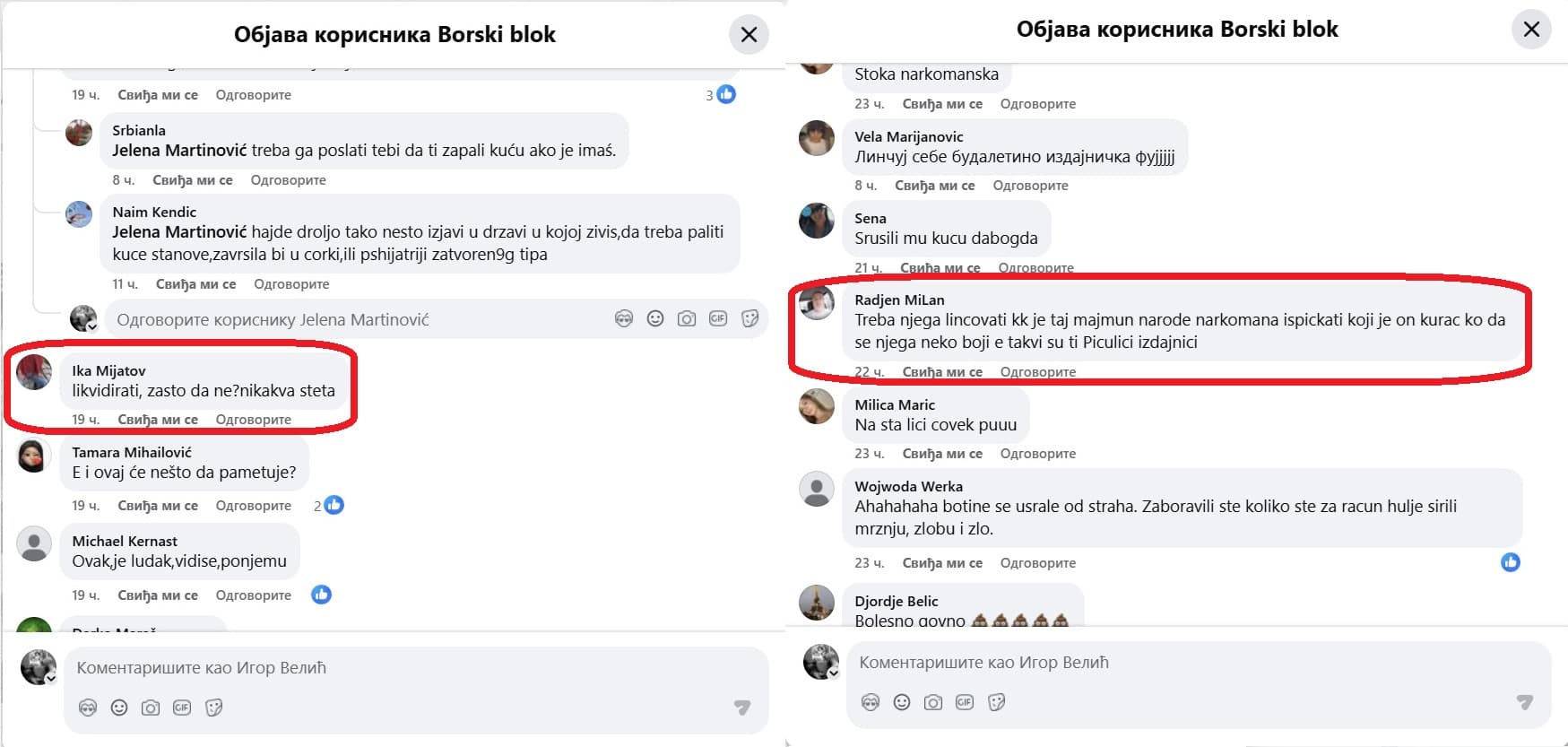Category
Latest News

Journalist Luka Pešić was threatened not to take photos around Pioneer Park.
January 26, 2026

ANEM ALARM: Disturbing threats to Radar columnist Predrag Simonović
January 26, 2026

ANEM database: Radoica Milosavljević received 133 million from state competitions in 2025.
January 25, 2026

Analysis of Advertising Practices in the Media: Money Flows, Lack of Criteria, and (Non)compliance with Ethical Standards
January 25, 2026

ANEM ALARM: New wave of threats and targeting of journalist Igor Velić from Bor
January 25, 2026







